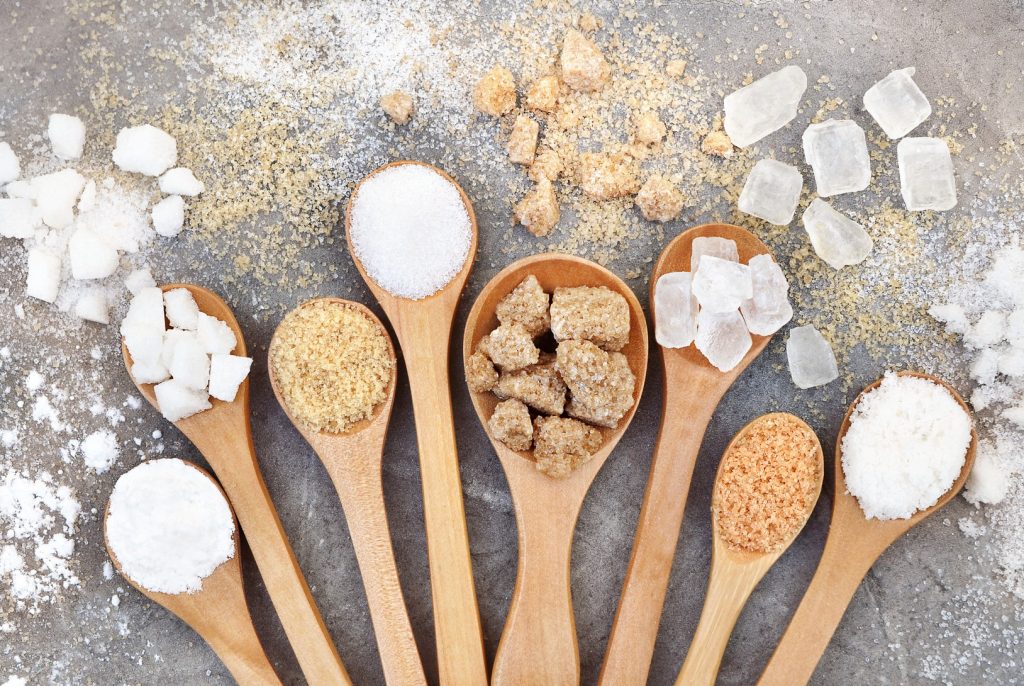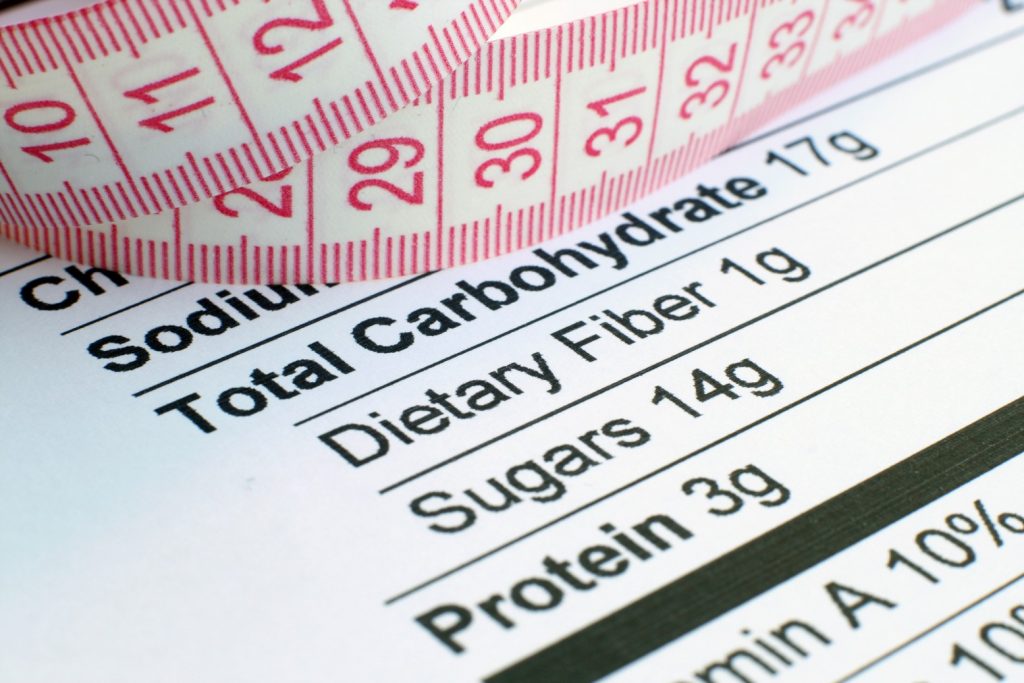
Did you know that there are at least 61 different names for sugar listed on snack, beverage and food labels? No? The following list includes just a few of the various names: high-fructose corn syrup, dehydrated cane juice, cane sugar, raw sugar, corn syrup, agave, honey, maple syrup, coconut sugar, brown sugar, fruit juice concentrates, invert sugar, malt sugar, molasses and sugar molecules ending in “ose” (dextrose, glucose, lactose, maltose, sucrose).
With so many different names to keep track of, it’s no wonder that the average American consumes 17 teaspoons every day. For Orlando and Central Florida men that’s 8 teaspoons more, and 11 teaspoons more for women, than the American Heart Association recommends.
Before looking at where to find information about how much sugar is in a favorite snack or beverage, let’s consider the differences between two different categories of sugar: added sugar vs naturally occurring sugar. Naturally occurring sugar is found in milk (lactose), fruit (fructose) and some vegetables. Added sugar is any sugar or sweetener that is added during the preparation or processing stages. Some foods like yogurt contain both naturally occurring sugar and added sugar.
The challenge for Orlando and Central Florida employees is understanding how much overall sugar is in a snack or beverage and whether any of that sugar occurs naturally. Added sugar is absorbed quickly into the body while natural sugar, usually accompanied by fiber, is absorbed more slowly. When reading nutrition labels, the following terms may be helpful:
- Total Sugar per Serving: the amount of added sugar plus naturally occurring sugar in a serving
- Sugar-Free: less than 0.5 g of sugar per serving
- Reduced Sugar or Less Sugar: at least 25 percent less sugars per serving compared to a standard serving size of the traditional variety
- No Added Sugars or Without Added Sugars: no sugars or sugar-containing ingredient such as juice or dry fruit is added during processing
- Low Sugar: this term is not allowed as a claim on food labels

Unfortunately, it is still difficult to know the exact amount of natural sugar is in a snack if that snack contains both added and natural sugars. But that will soon change as food manufacturers are required to list amounts for both by mid-2021. Researchers hope that this change will prevent nearly one million cases of cardiovascular disease and type 2 diabetes over the next 20 years.
Orlando and Central Florida employers have an opportunity to positively impact their employees’ health by offering snacks, beverages and fresh food that contain lower amounts of added sugar in the break room. Healthier employees miss fewer workdays, have more energy and are more productive – an important benefit for employers.
We are here to help Orlando and Central Florida employers and employees enjoy the benefits of healthy options available in micro-markets, pantry service and office coffee service. For more information, please call The Vending Station at (407) 891.7632.